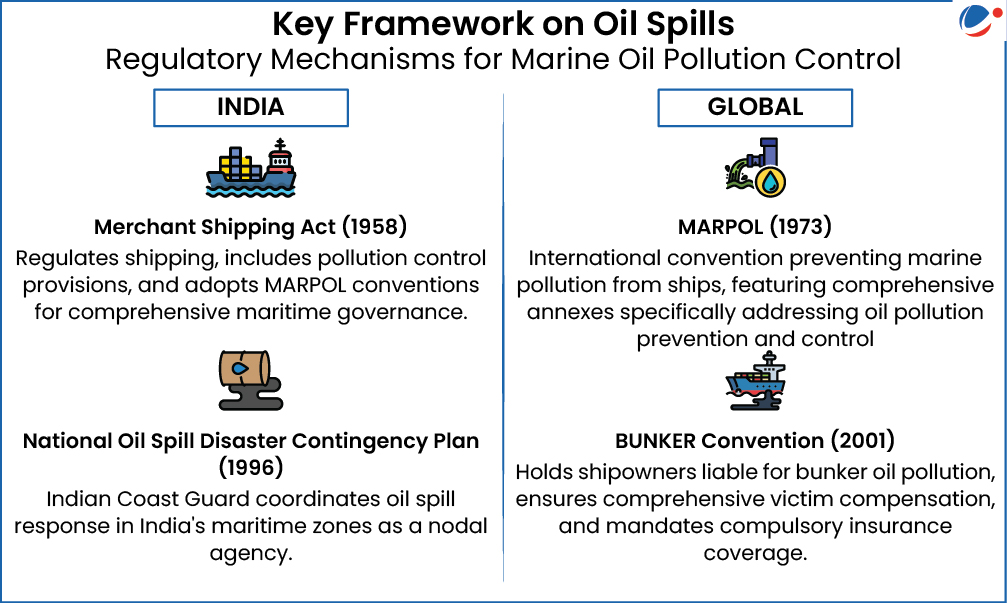Indian Coast Guard are concerned about a potential ecological disaster along the Kerala coast due to an oil spill and the presence of Calcium Carbide aboard the Liberian ship.
- Calcium Carbide is a hazardous chemical that reacts violently with seawater to produce highly flammable acetylene gas.
What is an oil spill?
- Definition: An oil spill is the release of a liquid petroleum hydrocarbon into the environment, especially marine areas, due to human activity.

- Source: Crude oil, diesel, petroleum, etc. from tankers, offshore platforms, drilling rigs or wells, etc.
- Impact:
- Oil poisons algae, disrupting food chains & reduce edible crustacean yield.
- Fish hatcheries are endangered, & commercially valuable fish flesh gets contaminated.
- Fish larvae and free-swimming organisms suffer.
- Tar particles affect benthic organisms. E.g., clams and mussels.
Key Technologies to Clean Oil Spills
- Bioremediation:E.g., Oilzapper & Oilivorous-S, developed by The Energy and Resources Institute (TERI); use bacteria to convert harmful hydrocarbons into harmless carbon dioxide and water.
- Sorbents: E.g., Milkweed plant’s fiber, commonly found in Rajasthan, can be effectively used as a sorbent material.
- Oil Boom: Involves using large floating booms with skirts extending into the water to physically isolate the spill area.
- Skimmers: These machines scrape oil from the water surface. They first concentrate the oil and later skim it efficiently.





